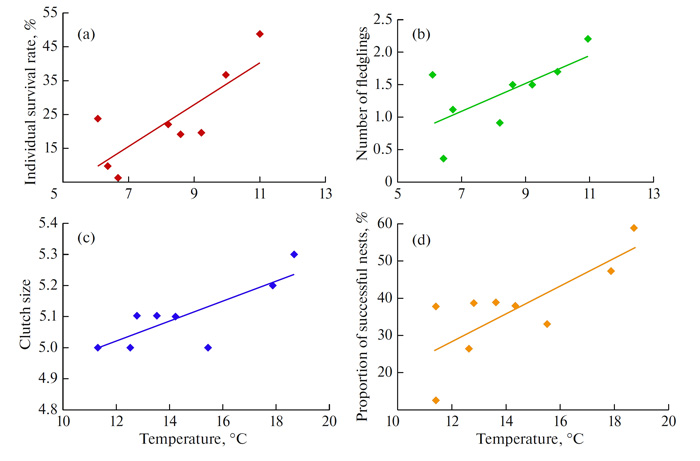| Follow @co2science |
Paper Reviewed
Vengerov, P.D. 2017. Effect of rise in spring air temperature on the arrival dates and reproductive success of the Song Thrush, Turdus philomelos (C.L. Brehm, 1831) in the forest-steppe of the Russian plain. Russian Journal of Ecology 48: 134-140.
One of the major concerns about model projections of CO2-induced global warming is that temperatures might rise to such a degree that the number of birds and their habitat areas will decline. Some climate alarmists go so far as to contend that global warming will result in the extinction of a number of bird species. However, this contention has been challenged by several studies published in the scientific literature (see, for example, the many reviews we have posted on this topic here, here and here, the latest of which refutations come from the work of Vengerov (2017).
Publishing in the Russian Journal of Ecology, Vengerov set out to "evaluate changes in the phenology of breeding and reproductive output of the Song Thrush (Turdus philomelos) under conditions of increase in spring air temperature in the zone of typical forest-steppe of the Russian Plain." To accomplish this objective, the author examined reproductive data collected on the species at the Voronezh Nature Reserve over an area of approximately four square kilometers every 4 or 5 days over the period 1987-1990 and 2008-2012. Altogether, 459 nests were observed over the nine years of study, during which time there was a statistically significant increase in spring temperatures.
Results of this analysis are depicted in the figure below, where it was determined that higher temperatures lead to (1) an "earlier arrival of the birds from wintering grounds," (2) "earlier and more synchronous breeding of the majority of nesting pairs," (3) "an increase in clutch size," (4) a higher proportion of pairs producing two broods per season, and (5) a reduction in "predation pressure on bird nests ... which markedly improves reproductive success."
Such findings, in the words of Vengerov, indicate that "climate warming is conducive to increasing breeding productivity of the Song Thrush population as a whole." We couldn't agree more!

Figure 1. Relationships between parameters of breeding productivity and air temperature (°C) in the Song Thrush: (a) probability of individual survival, (b) number of fledglings per nesting attempt (the first breeding stage), (c) average clutch size, and (d) proportion of successful nests (the second breeding stage). Source: Vengerov (2017).




